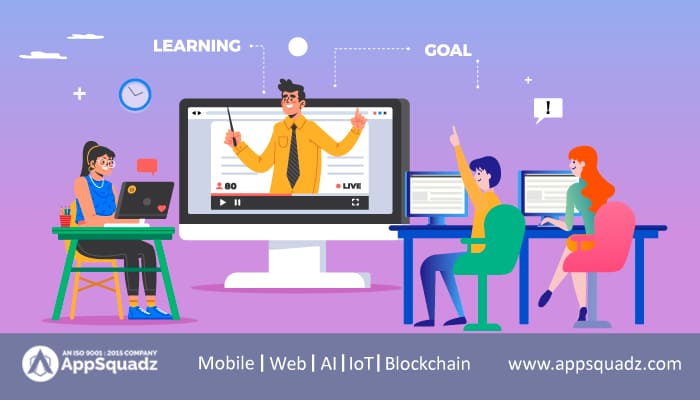Before we dive much into the successful steps to design a virtual classroom and its implementation, it is better to understand the basics and important definitions of it. The classroom can be majorly defined as the communication system which makes it possible for the group of people who come together to dialogue about something being it a visual or theory.
On the other hand, the virtual classroom is the system that provides the same opportunity for learning as well as a teaching process, all thanks to the computing communication networks. This is because of the ubiquity and the popularity of the internet which is particularly the World Wide Web and most of the virtual classroom implementations are web-based.
Now, let us summarize the major 10 easy steps for the designing of virtual classroom software as below:
Assess the needs and necessary conditions
One of the major purposes of this step is to make sure that the existence of the need for the proposed classroom and the basic infrastructure for developing it. A virtual classroom is normally too big of a task which can be highly carried out alone without the explicit support of the institution.
Estimate the development cost, efforts, and implications
The major purpose of this step is to reach a clear, accurate, and quantitative estimate of the overall cost to develop a virtual classroom. This is equally hard to estimate the duration of the project and the development of the this classroom and hence there is no exception in it at all.
Plan the virtual classroom
Now, it is high time to look more closely at the project from the point of an educational way. To develop a list of educational goals is one of the important parts of the planning process and the difficulties are coming up with more warnings about the overall validity of the approach.
Design the virtual classroom
Now, that you have assessed the entire proposed project it is the time to start the actual designing process. The HTML pages should be organized in such a way that it makes the navigation easy, simple, and consistent and decrease the amount of work important for site maintenance.
Prepare and distribute content
It is strongly advised to you to make a complete research, compare and evaluate the web design tools and supplementary software before you adopt a certain set of tools. To do HTML editing, one chooses to select from the simple, free tools to create fully-featured packages.
Enable communication
The effective communication between the students and the teacher among the students themselves must be on high priority issues at the time of the design of the virtual classroom software. There is two possible way to implement the communication between both of them such as synchronous and asynchronous way.
Implement assessment methods
Should the virtual classroom contain quizzes? These are the kind of questions that address the problem of assessing students’ performance in the virtual classroom environment and it lies in the need for fast, frequent feedback both for the students and the instructors.
Implement class management procedures
The class management tasks are clerical and administrative tasks which are important to ensure that the classroom can operate effectively. These are the tasks that many of the educators wish that they do not have to perform even knowing they’re important for the operation of the class.
Set up the system
It is now the time to get more towards the technical and discuss some of the major issues that can be made involved in setting up the system and can make the virtual classroom available. The first step is to choose the system which will act as a web server and its operating system and then choose the operating system which is quite a critical step since many software components depend on the underlying operating system.
Maintain and update
If you create a virtual classroom, it demands a lot of work but that is just the start of the phase and as with any other computer based on the information system, the virtual classroom needs maintenance and frequent updates to retain its important as well.
Conclusion
Despite the increase in demand for online learning and the courses available on the web and the hype all around the internet, the present need for the web-based virtual classroom has become very limited. This can build a gap by providing the reader some useful, up to date, and objective information about the process of designing implementing and thus marinating the way virtual classroom software can be highly designed.




